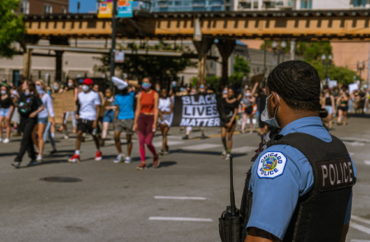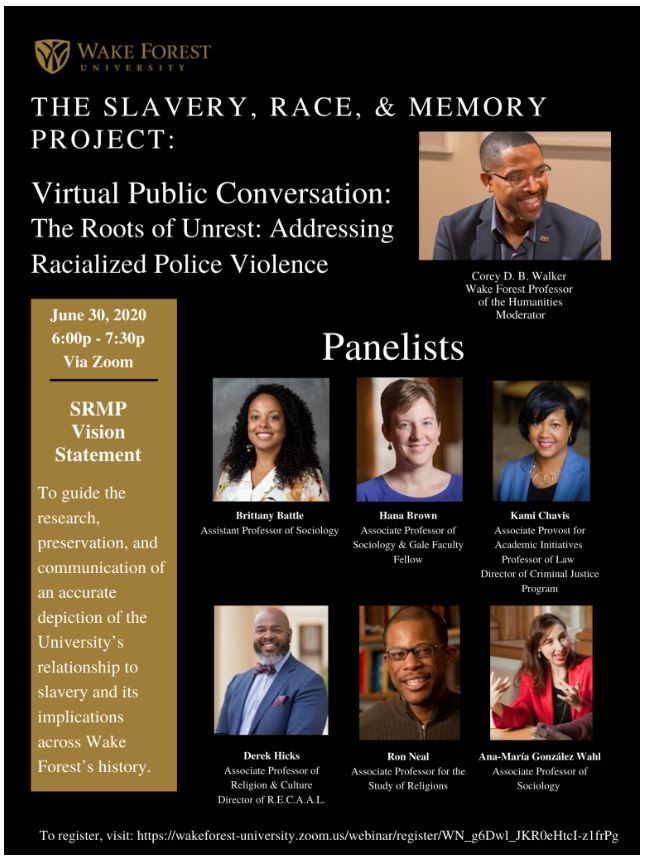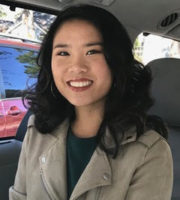
Scholar made comment during forum focused on police reform
America’s upper caste is using the police to ensure their supremacy, said Ron Neal, associate professor of religion at Wake Forest University, during an online panel Tuesday focused on reforming racialized police violence.
“We have designated … particularly black people at the very bottom of this society, as an outer group,” Neal said. “We have designated these people as a subpopulation to be policed, to be contained, to be treated like a prison population… So, the function of the police is to protect … the ruling caste from the outer caste.”
Neal continued by saying this is done through hyper-surveillance, constant harassment, prisons, jails, detention centers, or, in cases like George Floyd’s, execution.
“We have unfortunately given the state license to execute this population, but not only is the state given license to execute … but American institutions, at large, are also part of the whole process of this—of murder,” he said.
Neal was joined by five other panelists in the virtual public discussion hosted by Wake Forest University. The other panelists in “The Roots of Unrest: Addressing Racialized Police Violence” event each appeared to agree that the police, as well as America’s other institutions, need a major overhaul.

Kami Chavis, law professor and director of the Criminal Justice Program at Wake Forest University School of Law, said that the modern police culture is especially problematic when it’s combined with systemic racial bias.
“We need a paradigmatic shift in our thinking about policing, and that goes to our thinking about the criminal justice system in general,” she said.
Chavis suggested police contact needs to be minimized. Speaking to cases of Elijah McClain, Eric Garner, and George Floyd, she asked: “Do we need armed first responders?”
Brittany Battle, assistant professor of sociology at Wake Forest University, said that America’s child support system is one way in which African Americans are over-policed.
Once involved in the system, she said parents are “surveilled” as they have to notify child support authorities of their employment, address, and any changes in these areas. She also said they face the possibility of losing their driver’s and professional licenses and face incarceration for nonpayment of their child support payments.
She said that beyond direct contact with law enforcement, a constant state of indirect policing that individuals experience everyday exists.
“From my perspective, we can’t reform a system that’s fundamentally designed to oppress black people,” she said, “… to debase black bodies and to really hold up white supremacist logic.”
Derek Hicks, associate professor of religion and culture at Wake Forest University, presented both the historical and current aspect of what he called a “debasement campaign.”
“For me, [the debasement campaign] entails a thorough ongoing effort to debase blackness in order to maximize opportunities of control over black bodies not just during enslavement, but also to maintain that control through forms of policing and forms of black hold engagement and enforcement after slavery,” he said.
Ana-Maria González Wahl, associate professor of sociology at Wake Forest University, called for a more total revamping, saying that while proposals to ban certain police tactics, enforce more accountability, and cut the budget were steps in the right direction, “the whole structure of our society must be overhauled.”
“Those sorts of proposals should be recognized as important; they matter. But, at the same time … we need a radical reconstruction of society, as Dr. King reminded us,” she said. “I think the challenge in 2020, particularly in the face of pandemic, is how do we engage in that kind of work? What does that kind of work look like? What does it mean to not only engage in the kind of radical restructuring of law enforcement, but also the economy, our educational system, our political system?”
She also said that those in education would need to “turn that lens inward” and examine “the ways in which universities participate in the perpetuation of a carceral state.”
Hana Brown, associate professor of sociology at Wake Forest University, spoke on the nature of the protests against the police, as well as how both COVID-19 and the Black Lives Matter movement have amplified them.
She explained that “Thanks to systemic racism, black people are disproportionately likely to lose their livelihood due to the pandemic, disproportionately likely to face unemployment because they are disproportionately likely to work in inessential jobs, to not have health insurance, and to not have other economic protections.”
“I also think that COVID makes this historical moment more fertile ground for anti-racism protests because the pandemic has shown very clearly to people, especially white people who might have not otherwise known that it isn’t just the police who don’t think black lives matter, it’s the United States as a whole,” she said.
MORE: GWU official issues apology for email touting police job recruitment fair
IMAGE: Untitled Title / Shutterstock





Please join the conversation about our stories on Facebook, Twitter, Instagram, Reddit, MeWe, Rumble, Gab, Minds and Gettr.